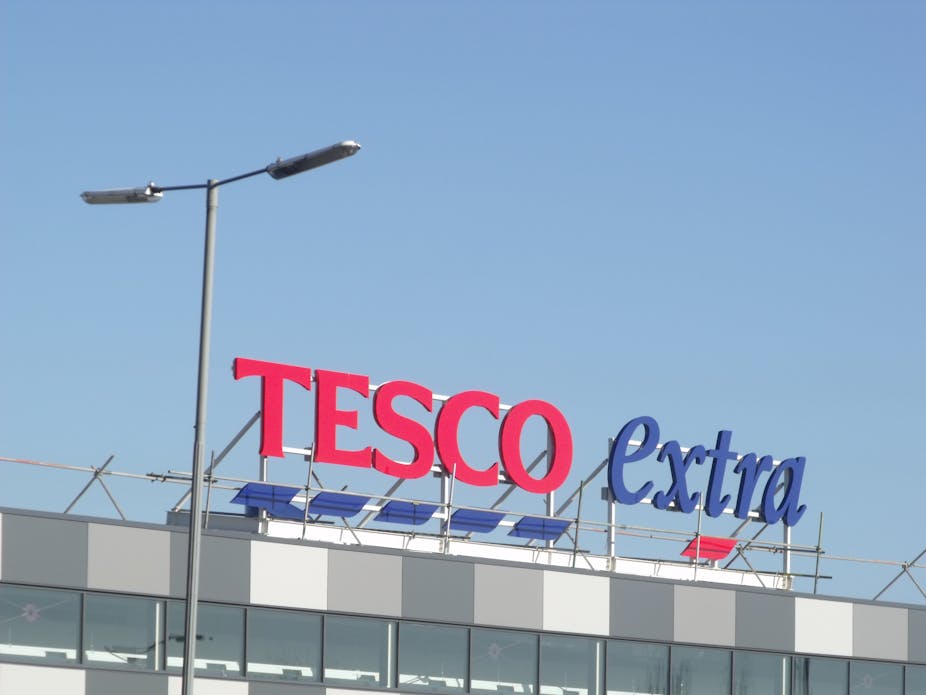When Steve Jobs introduced the iPad in 2010, he argued that unless the device was better at doing everyday tasks than smartphones or netbooks, it wouldn’t deserve to exist. Consumers and corporates embraced the concept and for the next two years Apple maintained at least a 60% share in the tablet market, curtailing Netbook sales and placing the retail PC market into decline. Now every hardware manufacturer has a tablet product – across a range of prices.
The latest entrant into a crowded market will be Tesco, with a rumoured release date set to target Christmas. Previous attempts by retailers to brand their own device have been disastrous – two years ago Next and Asda discovered that the only way to sell a device at £90-100 was by compromising on the build quality and specification, resulting in poor-quality screens, slow touch responsiveness, short battery life and reduced memory, restricting the ability to run applications.
Now things have changed - competition, multiple hardware manufacturers, improvements in technology and increasing demand have driven quality up and prices down.
Apple still dominates the premium device category and is more likely to innovate on hardware specifications and software services, but mid-range devices from a variety of manufacturers that sell for £150-£300 are increasing in market share and have functionality that can match the iPad.
Google’s Android Operating System dominates the mid-range and the low-price sector, but lacks the ease of use and access to the universe of online services that Apple uses to differentiate itself, such as iCloud synchronisation, seamless backup and access to the iTunes store. Android’s developmental model is similar to that of open source, placing code in the public domain for free reuse, although Google has been criticised for the way it manages this process, giving selected partners early access to new versions.
At the low end of the market, an increasing number of devices are sold for less than £120. These cheaper devices prove to be successful when they are bound to a distinct software services such as Google Play or Amazon Kindle.
But Tesco can differentiate its device from competitor products such as the Nexus 7, next generation Kindle or iPad Mini if it wins in three important areas - price, online services and knowing its customers. It has strong form in all three areas and is something of a leader in the latter in particular.
It seems likely that Tesco will pitch its device just above the low end of the market at around £100-£150, reducing its initial margins, but making money through cloud services that are specific to its own customers. This is a model that works well for Microsoft and Sony with their games consoles. A heavily customised version of Android modified to suggest the Tesco brand could be used to promote pre-existing services such as their own mobile phone network, branded bank account, credit card, mortgage services and online weekly shopping.
Tesco intends to move further than this; having suffered a reduction in the sales of books, DVDs and music to Amazon and the iTunes store, it has been building or acquiring a series of online platforms for media – Blinkbox for Video, an in-house store for eBooks and a streaming service for music that is similar to Spotify. For many years, Tesco has been quietly developing one of the most sophisticated models of predictive shopping behaviour using a combination of its Clubcard, online and store sales, through the company Dunnhumby. This technology enables it to predict the exact sales that will occur in specific stores over time, and ensure that the supply chain anticipates these requirements.
Combining this predictive ability with an always-on mobile device should give Tesco the ability to offer brands, discounts and sales on all its items and services, all without having to bring customers in to physical stores. Consumers have demonstrated that they are willing to sacrifice privacy if they receive products and services specifically targeted at them, so the Tesco tablet could monitor a shopper’s location, habits and purchases and start offering better customised suggestions.
With knowledge and resources like these, it is quite possible that Apple, Amazon and Google could be outmanoeuvred by a greengrocer.

